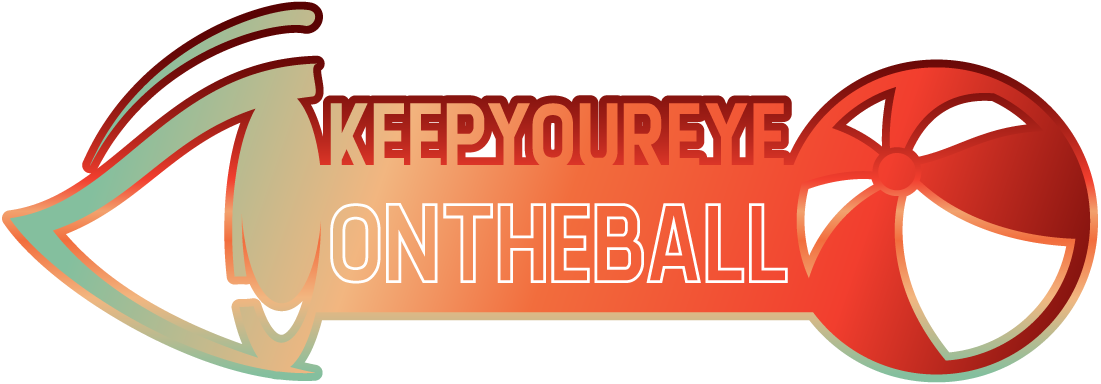As athletes push their bodies to new limits, they often overlook one crucial aspect of their training regimen: proper nutrition. Adequate fueling can mean the difference between victory and defeat, making it essential for athletes to understand their nutritional needs and develop effective strategies for peak performance. With the right balance of macronutrients, hydration, and recovery techniques, athletes can optimize their energy levels, support muscle growth and repair, and reduce the risk of injury or illness.
Nutritional Needs for Athletes
As an athlete, fueling your body with the right nutrients is crucial for optimal performance and recovery.
-
Carbohydrates:
Aim for 45-65% of daily calories from complex carbs like whole grains, fruits, and vegetables.
-
Protein:
Consume 10-30% of daily calories from lean protein sources like poultry, fish, beans, and dairy products.
-
Fat:
Get 20-35% of daily calories from healthy fats like nuts, seeds, avocados, and olive oil.
Hydration is also essential for athletes, aiming to drink at least 8-10 glasses of water per day, and consume electrolyte-rich beverages during and after intense exercise.
Pre-Workout Nutrition
- Eat a balanced meal 1-3 hours before exercise, including complex carbs, lean protein, and healthy fats.
- Avoid heavy meals or high-fiber foods that can cause digestive discomfort during exercise.
Post-Workout Nutrition
- Consume a mix of carbohydrates and protein within 30-60 minutes after exercise to aid in muscle recovery and replenish energy stores.
- Aim for a ratio of 3:1 or 4:1 carbohydrates to protein.
Additional Considerations
- Consider consulting a registered dietitian or sports nutritionist to develop a personalized nutrition plan tailored to your specific needs and goals.
- Pay attention to individual nutrient needs based on factors like age, sex, weight, height, and activity level.
Example Meal Plan
- Breakfast: Overnight oats with banana, almond milk, and walnuts (400 calories, 60g carbs, 20g protein, 15g fat)
- Lunch: Grilled chicken breast with quinoa, steamed vegetables, and avocado (500 calories, 40g carbs, 35g protein, 20g fat)
- Dinner: Baked salmon with sweet potato, green beans, and almonds (550 calories, 60g carbs, 35g protein, 25g fat)
Remember to stay hydrated and listen to your body’s nutritional needs, adjusting your diet accordingly to optimize performance and overall health.
Optimal Nutrition for Athletes
An athlete’s diet should be tailored to meet their unique energy needs, taking into account factors such as age, sex, weight, height, and activity level.
-
Caloric Intake
Athletes require a sufficient caloric intake to support their energy expenditure during exercise and recovery. Aim for 15-20% above maintenance calories to support muscle growth and repair.
- For endurance athletes, aim for 2500-3000 calories per day.
- For strength-trained athletes, aim for 3500-4000 calories per day.
-
Macronutrient Balance
A balanced diet consisting of carbohydrates, protein, and healthy fats is essential for optimal performance.
- Carbohydrates: 55-65% of total daily calories, focusing on complex carbs such as whole grains, fruits, and vegetables.
- Protein: 15-20% of total daily calories, aiming for 1.2-1.6 grams of protein per kilogram of body weight.
- Fats: 20-25% of total daily calories, emphasizing healthy fats such as nuts, seeds, avocados, and olive oil.
-
Hydration
Adequate hydration is crucial for physical performance and recovery.
- Aim to drink at least 8-10 glasses of water per day.
- Monitor urine color to ensure adequate hydration.
-
Electrolytes
Electrolytes play a critical role in maintaining proper fluid balance and nerve function.
- Sodium: 1500-2000 milligrams per day.
- Potassium: 2000-3000 milligrams per day.
- Magnesium: 310-420 milligrams per day.
-
Meal Frequency and Timing
Aiming for 5-6 meals per day, spaced out every 2-3 hours, can help maintain stable energy levels and support muscle growth.
- Pre-workout meal: Complex carb with protein and healthy fat 1-3 hours before exercise.
- Post-workout meal: Carbohydrate with protein and healthy fat within 30-60 minutes after exercise.
Remember to consult with a registered dietitian or healthcare professional to determine individualized nutritional needs based on specific sport, training program, and health status.
The Best Diet for an Athlete
Eating a well-balanced diet is crucial for optimal athletic performance.
-
Carbohydrates
Athletes require complex carbohydrates such as whole grains, fruits, and vegetables to fuel their bodies during intense physical activity.
- Whole grain bread, pasta, and cereals
- Fruits like bananas, berries, and citrus fruits
- Vegetables like leafy greens, broccoli, and bell peppers
-
Protein
Adequate protein intake helps repair and rebuild muscle tissue damaged during exercise.
- Lean meats like chicken, turkey, and fish
- Nuts and seeds like almonds, walnuts, and chia seeds
- Dairy products like milk, yogurt, and cheese
-
Fats
Athletes need healthy fats to absorb essential vitamins and minerals.
- Nuts and seeds like flaxseeds, hemp seeds, and pumpkin seeds
- Fatty fish like salmon and tuna
- Avocados and olive oil
-
Hydration
Adequate hydration is vital for physical performance and recovery.
- Drink plenty of water throughout the day
- Electrolyte-rich beverages like coconut water and sports drinks
Additionally, consider the following tips:
- Eat smaller, frequent meals to maintain energy levels
- Avoid processed foods and added sugars
- Stay hydrated before, during, and after exercise
- Listen to your body and adjust your diet accordingly
By following these guidelines, you can optimize your diet for peak athletic performance and achieve your fitness goals.
Creating a Nutrition Plan for Athletes
As an athlete, having a well-planned nutrition strategy is crucial for optimal performance and recovery.
-
Step 1: Determine Your Caloric Needs
-
Step 2: Choose Your Macronutrient Balance
-
Step 3: Plan Your Meals
-
Step 4: Hydrate Properly
-
Step 5: Monitor Your Progress
Determine your daily caloric needs based on your age, sex, weight, height, and activity level. You can use online calculators or consult with a registered dietitian to determine your individual caloric needs.
Decide on your macronutrient balance, which includes carbohydrates, protein, and fat. Aim for a balanced ratio of 55-65% carbohydrates, 15-20% protein, and 20-25% fat.
Plan your meals in advance, considering your training schedule and competition dates. Include a variety of whole foods, such as fruits, vegetables, whole grains, lean proteins, and healthy fats.
Adequate hydration is essential for athletic performance. Aim to drink at least 8-10 glasses of water per day, and consider increasing your fluid intake during intense training sessions.
Regularly monitor your progress by tracking your food intake, body weight, and performance metrics. Adjust your nutrition plan as needed to optimize your performance.
Nutrition Tips for Athletes
- Eat complex carbohydrates, such as whole grains, fruits, and vegetables, for sustained energy.
- Incorporate lean protein sources, such as chicken, fish, and beans, to support muscle growth and repair.
- Include healthy fats, such as nuts, seeds, and avocados, for sustained energy and hormone regulation.
- Avoid processed and high-sugar foods, which can cause energy crashes and decreased performance.
- Consider working with a registered dietitian or sports nutritionist to develop a personalized nutrition plan.
Sample Meal Plan for Athletes
| Breakfast | Lunch | Dinner |
|---|---|---|
| Oatmeal with banana and almond butter | Grilled chicken breast with quinoa and steamed vegetables | Salmon with sweet potato and green beans |
Additional Resources
For more information on nutrition planning for athletes, visit the Academy of Nutrition and Dietetics website (https://www.andjrnl.org) or consult with a registered dietitian or sports nutritionist.
The 502525 Meal Plan
The 502525 meal plan is a structured approach to eating that helps control blood sugar levels.
-
Understanding the 502525 Plate
This method involves dividing your plate into five sections:
- 25% lean protein
- 25% complex carbohydrate
- 50% non-starchy vegetables or fruits
-
Benefits of the 502525 Meal Plan
This eating strategy offers several benefits, including:
- Improved blood sugar control
- Weight management
- Increased fiber intake
- Reduced risk of chronic diseases
-
Implementing the 502525 Meal Plan
To get started, consider the following tips:
- Focus on whole, unprocessed foods
- Incorporate a variety of colorful vegetables
- Choose lean protein sources
- Avoid sugary drinks and refined carbohydrates
By following the 502525 meal plan, you can develop healthy eating habits and improve your overall well-being.
LeBron James Daily Diet
I’m always curious about what fuels my favorite NBA players, and today I’ll dive into the daily diet of none other than King James himself – LeBron James.
-
Breakfast
- LeBron starts his day with a hearty breakfast consisting of scrambled eggs, turkey bacon, whole wheat toast, and fresh fruit.
- He also makes sure to drink plenty of water throughout the morning to stay hydrated.
-
Lunch
- For lunch, LeBron typically opts for lean proteins like chicken or fish, paired with complex carbohydrates like brown rice or quinoa.
- He also includes a variety of vegetables in his meals, such as broccoli, spinach, and bell peppers.
-
Dinner
- In the evening, LeBron enjoys a balanced dinner featuring grilled meats, roasted vegetables, and whole grains.
- He also makes sure to limit his intake of processed foods and added sugars.
-
Snacks
- Between meals, LeBron snacks on healthy options like nuts, seeds, and dried fruits.
- He also stays hydrated by drinking plenty of water throughout the day.
By fueling his body with nutrient-dense foods, LeBron is able to perform at his best on the court and maintain a high level of overall health and wellness.





0 Comments